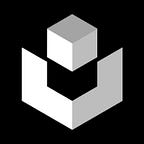Q1
Economic & Security Audit
Depending on the financial and product development, the degree of centralization of management of the economy and the social sphere of ShieldDAO, the financial control systems is dependent on community motive, benefits and approval. Compliance by ShieldDAO with existing legislation as well as the disposal of property entrusted to the Shield Vault should be controlled by community decision. That is why, in the development of the protocol, attention is paid to the community’s financial control of all aspects of ecosystem growth. ShieldDAO, at the present stage of economic development, occupies a special place in the sphere of product development. Community decision largely determines the ecosystem’s level of development and its productive forces. It also has an impact on the development of Decentralized Finance. Shield Protocol has a significant specificity associated with such features of Security, as a link to normative and estimate bases with various possibilities for recalculation of prices and is intended for renewal of production assets, development and improvement of Shield Protocol, reconstruction, modernization and technical re-equipment of production.
A security audit is a high-level mechanism of the many ways organizations can test and assess their overall security posture, including cybersecurity. Regular protocol audits detect new vulnerabilities and R&D Focus, and on top of that, they are required in the financial industry.
Other benefits of running security audits include:
1. Verification of the adequacy of a current security strategy.
2. Ensuring security training efforts are moving the needle from one audit to the next.
3. Cost reduction by shutting down or repurposing extraneous hardware and software uncovered during an audit.
4. Uncovering, through security audits, vulnerabilities introduced into Protocol by new technology or contracts.
5. Certification that the organization is compliant with DeFi Standards.
Exchange Launch Pool:
Shield staking will be made available on a stake-enabled platform offering rewards that incentivizes an inclination toward Decentralized Finance (DeFi). On DeFi protocols, this form of compensation is geared toward incentivizing Shield Miners. When staking, there’s no upper limit, and no KYC (know-your-customer) is required. Also, staked funds are not locked and can promptly be withdrawn at any time. The Shield Farm Interface will be enabled across different Decentralized Exchanges to allow Shield Miners to earn Shield or other specified asset.
Q2
Exchange Access & Fiat Gateway Integration
The Shield Exchange Gateway (SEG) allows multiple parties to operate their own oracle networks and provide price feed services. The Shield Oracle Service Provider (SOSP) will set up a network provider, and through governance approval, it would be enacted through runtime upgrade. The Shield Multi-Collateralized Vault (SMCV) is backed by cross-chain assets like Bitcoin, a trustless staking derivative, and a decentralized exchange to unleash liquidity and power financial innovations. These data feeds are aggregated into a single price feed available for consumption via the Gateway. The Polkadot protocol will be integrated to allows diverse blockchains to transfer value, using Shield security. The Shield Gateway will be a scalable, heterogeneous, and multi-chain technology.
Planned Integrations:
1. 0x1 Finance to provide cross-chain liquidity to DEX Ecosystem;
2. Graph Network: scalable DApps;
3. Reef DeFi: Cross-chain DeFi money markets; and
4. ShieldSwap: Insure Smart Asset Management trading Shield Asset on an AMM-powered decentralized exchange.
Shield Vault & Yield Engine:
The Shield Vault is backed by Multi-Collateral Assets and represents ShieldDAO’s core security with different assets featured and the activation of a smart contract that paves the way for new collateral assets to back Shield.
Shield Yield Engine Features:
i. Multi asset support — the Shield Yield Engine (SYE) will be able to support various types of tokens including stablecoins, synthetic tokens, hybrid tokens, etc.
ii. Staking Support: Automatic staking on behalf of the user will be supported for Proof of Stake tokens.
iii. Liquidity Farming
iv. Loss Mitigation/Insurance Coverage
Q3
Smart Asset Management (SAM)
ShieldDAO’s Smart Asset Management is all about having the right system and process that helps reduce downtime, increase productivity, ensure a longer life for ShieldDAO and helps the protocol run smoothly. It makes ShieldDAO more efficient and cost-effective.
The DeFi protocol enables users to lend and borrow a diverse range of cryptocurrencies using both stable and variable interest rates. In addition to protocols like Compound, ShieldDAO includes notable distinguishing features such as uncollateralized loans, “rate switching”, flash loan and unique collateral types.
Generating income using ShieldDAO’s SAM strategy entails the financial service of managing Shield assets by means of governance with the aim of increasing the invested assets. Thus, ShieldDAO, as asset manager is a community whose business purpose is managing wealth through decentralized management. Assets are bundled and invested as profitably as possible through Shield’s decentralized platform.
Pooling, Delegation and Curation Mechanism:
Shield Assets will have to go through several processes — Pooling of Proposal/points — Delegation of Asset and Curation. ShieldDAO is charged with securing the most profitable protocol to delegate asset, standards of operation and curation team must be in check.
Ethereum Protocol Integration:
ShieldDAO extends protocol benefit to different DeFi protocols to gain exposure.
Analytic Engine Indexers with Graph:
Shield Engine Indexer (SEI) is an AI which is designed to quickly locate and retrieve data with minimum disk access and optimum performance efficiency. However, the indexing techniques applied to traditional data sets that proved to be efficient failed to prove their efficiency when applied to big data.
SEI database uses The Graph Protocol for semantic queries with nodes, edges, and properties to represent and store data.
